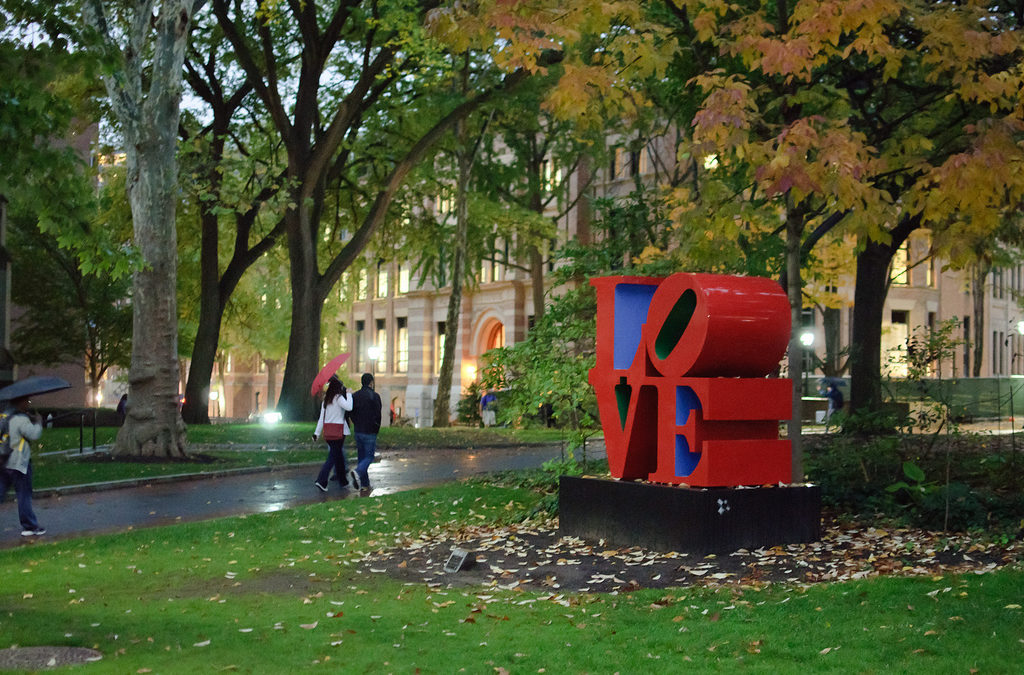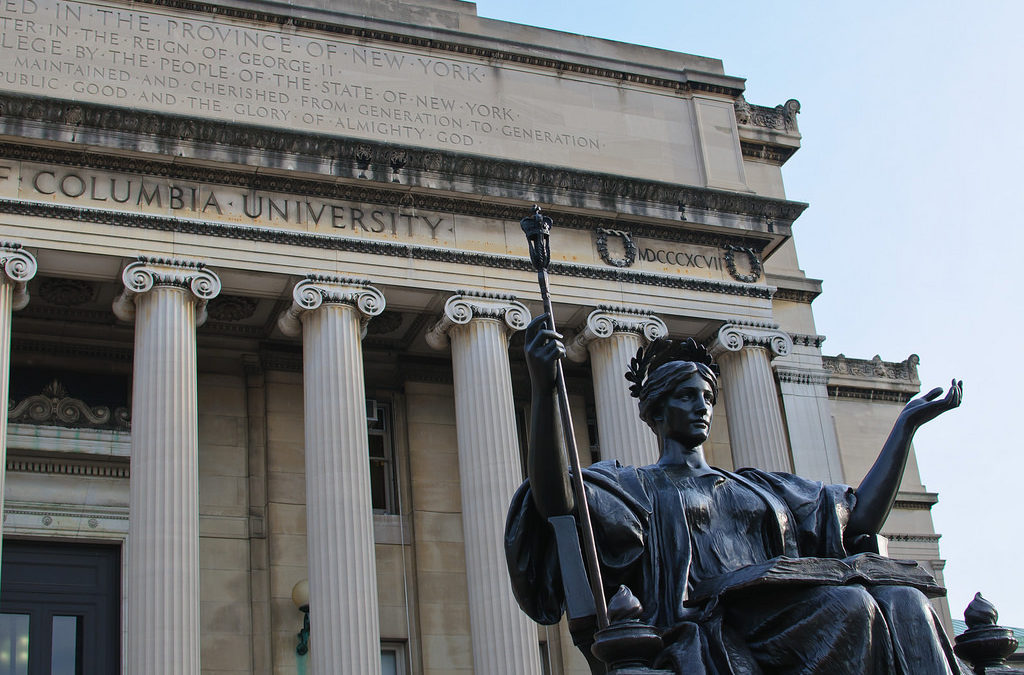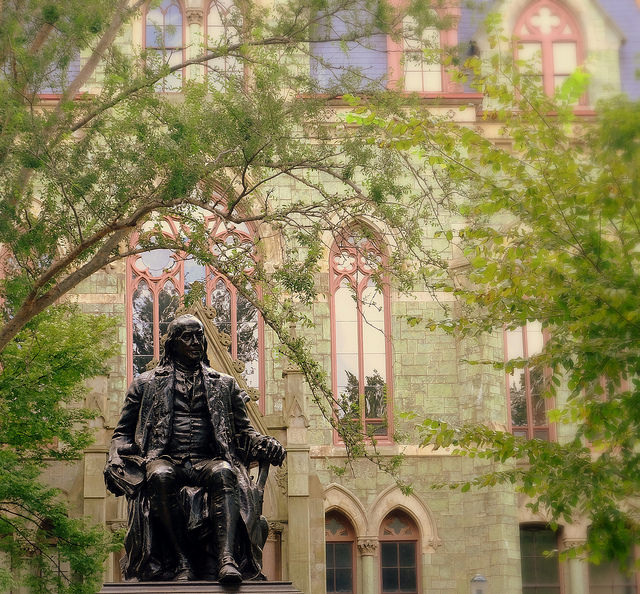
College Essay Example & Analysis – New York University
*Lyle is not a student of Winning Ivy Prep
NYU Common App Essay Example
While resting comfortably in my air-conditioned bedroom one hot summer night, I received a phone call from my mom. She asked me softly, “Lyle, can you come down and clean up the restaurant?”
Slightly annoyed, I put on my sandals and proceeded downstairs. Mixing the hot water with cleaning detergents, I was ready to clean up the restaurant floor. Usually the process was painstakingly slow: I had to first empty a bucket full of dirty water, only to fill it up again with boiling water. But that night I made quick work and finished in five minutes. My mom, unsatisfied, snatched the mop from me and began to demonstrate the “proper way” to clean the floor. She demanded a redo. I complied, but she showed no signs of approval. As much as I wanted to erupt that night, I had good reasons to stay calm.
Growing up in rural China, my mom concerned herself not with what she would wear to school every day, but rather how she could provide for her family. While many of her classmates immediately joined the work force upon completing high school, my mom had other aspirations. She wanted to be a doctor. But when her college rejections arrived, my mother, despite being one of the strongest individuals I know, broke down. My grandparents urged her to pursue another year of education. She refused. Instead, she took up a modestly paying job as a teacher in order to lessen the financial burden on the family. Today, more than twenty years have passed, yet the walls of my parents’ bedroom still do not bear a framed college degree with the name “Tang Xiao Geng” on it.
In contrast, when I visit my friends, I see the names of elite institutions adorning the living room walls. I am conscious that these framed diplomas are testaments to the hard work and accomplishments of my friends’ parents and siblings. Nevertheless, the sight of them was an irritating reminder of the disparity between our households. I was not the upper middle class kid on Park Avenue. Truth be told, I am just some kid from Brooklyn.
Instead of diplomas and accolades, my parents’ room emits a smell from the restaurant uniforms they wear seven days a week, all year round. It’s funny how I never see my mom in makeup, expensive jeans, lavish dresses, or even just casual, everyday clothing that I often see other moms wearing. Yet, one must possess something extraordinary to be able to stand in front of a cash register for 19 years and do so with pride and determination.
On certain nights, I would come home sweaty, dressed in a gold button blazer and colored pants, unmistakable evidence of socializing. In contrast, my mom appears physically and emotionally worn-out from work. But, she still asks me about my day. Consumed by guilt, I find it hard to answer her.
Moments such as those challenge my criteria of what constitutes true success. My mother, despite never going to college, still managed to make a difference in my life. Tomorrow, she will put on her uniform with just as much dignity as a businesswoman would her power suit. What is her secret? She wholeheartedly believes that her son’s future is worth the investment. The outcome of my education will be vindication of that belief.
In hindsight, I’m astounded at the ease with which I can compose all my views of this amazing woman on a piece of paper, but lack the nerve to express my gratitude in conversations. Perhaps, actions will indeed speak louder than words. When I graduate on June 1st, I know she will buy a dress to honor the special occasion. When I toil through my college thesis, I know she will still be mopping the restaurant floor at 11:00 PM. When I finally hang up my diploma in my bedroom, I know she will be smiling.
Source: NYTimes
———
Analysis & Comments
In this essay, the author made me feel:
- Warm. It’s a beautifully written tribute to Lyle’s mother, it makes me almost want to call my mom and say some thank you’s.
In this essay, the author exhibits these personality traits:
- Compassion
- Clarity of thought and organization
College Essay Strengths:
Lyle picked a topic that is a universal heartstring-puller: moms. We get a glimpse into Lyle’s family and upbringing in this essay, and we see very clearly his gratitude towards his mom and the sacrifices she has given to propel Lyle’s life.
College Essay Weaknesses:
This essay is very well-written – there’s no doubt about that. However, for a college application personal statement, it falls a bit short. Here’s why: The essay focuses a little too much on Lyle’s mom than about Lyle himself. Sure, he gives us some background about his upbringing and culture, but we still don’t know much about Lyle.
What on earth is Lyle passionate about? He talks about how getting a college diploma would make his mother proud, but… is that his motivation for going to college? I doubt it is, but it’s unclear.
Lyle missed a crucial opportunity to showcase who HE is (not his mother) to the admissions committee. He really could’ve sprinkled in more tidbits about himself and his interests in the essay that still would’ve preserved the message of gratitude towards his mother.
We picked this essay example to highlight the importance of telling a story that is all about YOU in your college personal statement. We’ve read tons of beautifully written essays, but it’s a BIG problem if students don’t tie the story back to a message they want the admissions committee to know about them.
This is your application. This is your chance to showcase your personality to the admissions committee. Don’t miss it!
Check out the link below for more Common App essay examples
Get more college essay examples for Stanford, UPenn, Columbia, NYU… You name it!
Image Attribution: Flickr
Common App Requirements Grid
Common App Essay Questions



